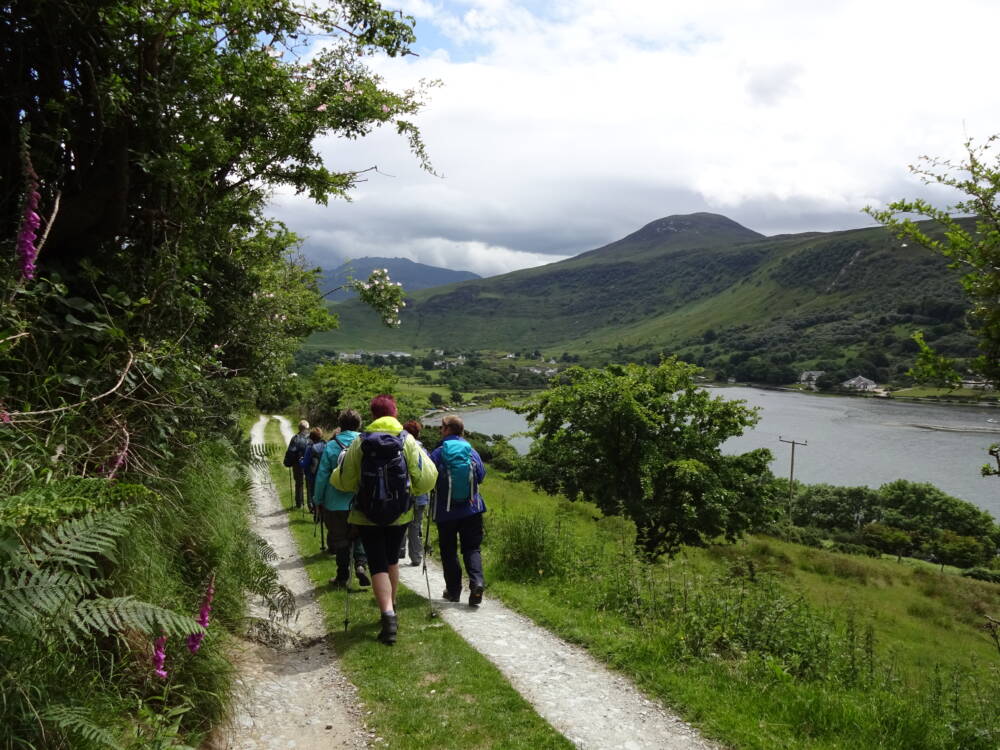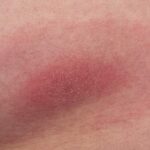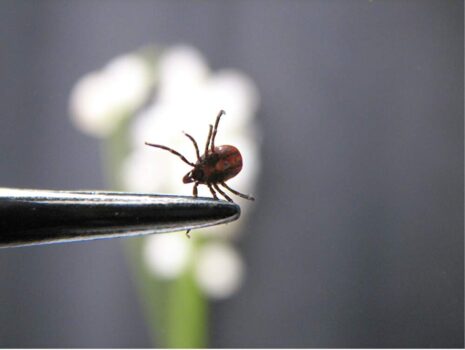How to be aware and protect yourself in the outdoors
For anyone who enjoys walking outdoors it is important to be aware of ticks. At WalkingWomen we like to be aware and prepared for any eventualities in the outdoors and we hope this information will help all our walkers.
This summer we had a couple of women with tick bites and it was critical that they knew what to do. Below we share our top Tick Tips for protection and for what to do if you get a bite. The majority are harmless but you need to stay aware and see a doctor if you are concerned .
Some can carry Lyme Disease or Tick-borne Encephalitis with some rarer bacterial infections in some parts of the world.

Where can you find ticks?
Ticks are commonly found in a variety of outdoor environments, particularly those that are humid or heavily vegetated. They like long grasses and wooded and forest areas. They are often more prevalent where animals(such as deers,rodents ) live.
Ticks are most active in warmer months (spring through early autumn), but in some regions, they can be found year-round. It is best to be cautious in specific areas and your guide will advise you.
Are there vaccinations against tick bites?
In some countries there are vaccinations available against tick – borne encephalitis. They are now available in the UK so wherever you are in the world it is worth checking with your doctor. You need 2 or 3 vaccines spaced out over several weeks so do book an appointment to get vaccinated before a trip where ticks may be found.
See the vaccination advice from Fit for Travel
This video gives you a comprehensive overview about Ticks and we recommend it as in just a few minutes you can learn all you need to know.
Tick Video – what you need to know
What can I do to protect myself ?
Here are our top 5 Tips – easy to remember and easy to do
1. Wear Protective Clothing – Wear long-sleeved shirts, long trousers, and boots or shoes not open hiking sandals.
If you are in areas more likely to have ticks it can help to tuck your trousers into your socks or boots to limit exposed skin.
2. Use Tick Repellent: ask in your local pharmacy for tick repellent containing DEET, picaridin, or oil of lemon eucalyptus on exposed skin.
Apparently ticks dislike anything smelling of lemon, orange, cinnamon, lavender, peppermint, and rose geranium. So find sprays with these scents.
You can also spray your clothes.
3. Stay on Paths and Trails: your guide will guide you.
We always say that if you need a pee don‘t pee in the long grass! And avoid brushing up against dense vegetarian. Also don‘t touch animals.
4. Check for Ticks Frequently:
Look out for these small creatures – they become bigger when they fill up with blood. Pay special attention to common tick bite areas like armpits, behind the knees, groin, scalp, and neck.
Most ticks are not infectious but if they are the most important thing is to remove them quickly and keep checking over the next few days. If a red mark appears that gets bigger go and see a doctor. Any worries at all see a doctor and ask for a blood test.
5. Shower After Outdoor Activity:
Always good to shower within two hours of being outdoors if you can. It helps you inspect your body and to help wash off ticks that may be on your skin.
What if I get a Tick on me?
Remove Ticks Safely: ask for guidance from your guide if you need it.
Use fine-tipped tweezers to grasp a tick close to the skin’s surface and pull upward with steady, even pressure.
Clean the bite area and your hands afterward with soap and water or rubbing alcohol.
What next if you have a Tick?


The majority of ticks don‘t cause problems but it is better to be safe.
Firstly get it off you as swiftly as you can. We suggest you take your own small first aid kits with tweezers, anti septic wipes and things like plasters that may come in handy. YOUR GUIDE ALWAYS CARRIES A FIRST AID KIT.
Then keep an eye of the mark and seek medical advice if it doesn‘t go away or gets bigger or rash like. Symptoms can also be flu like ones. You can always ask for blood test to put your mind at rest.
Our guides are aware and we will have information available for you in your travel information packs with any health advice required for where you are going.

